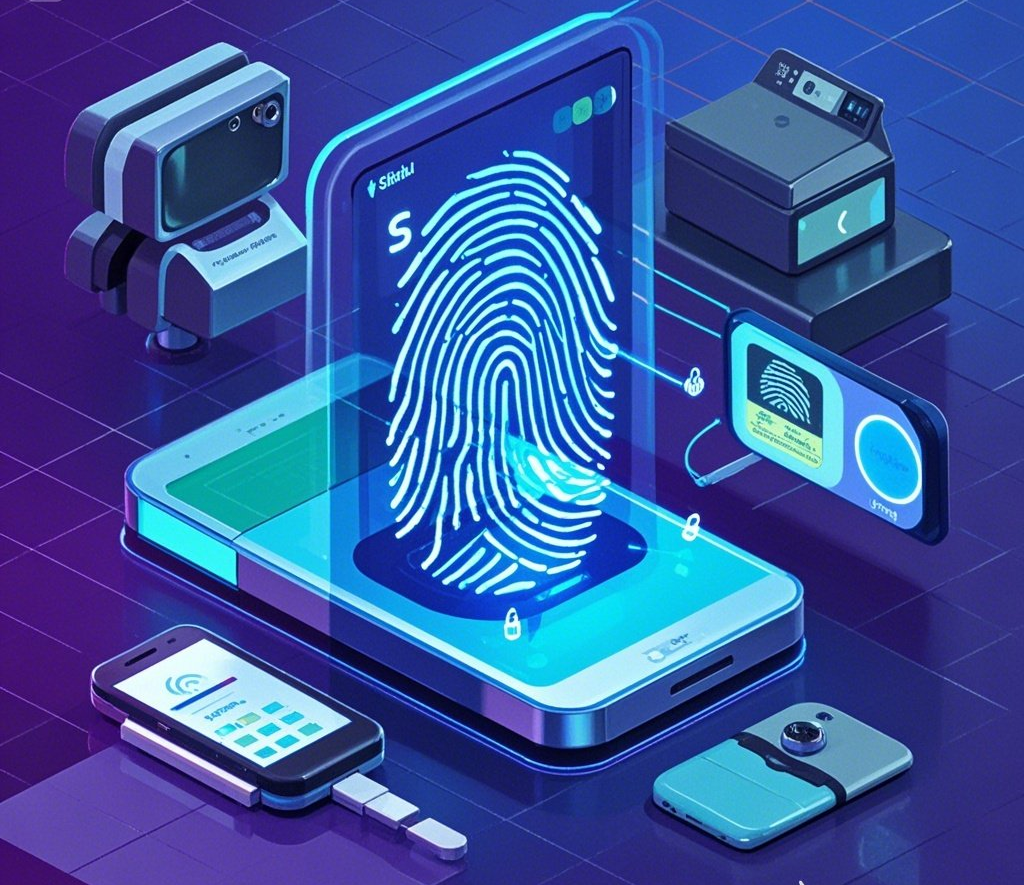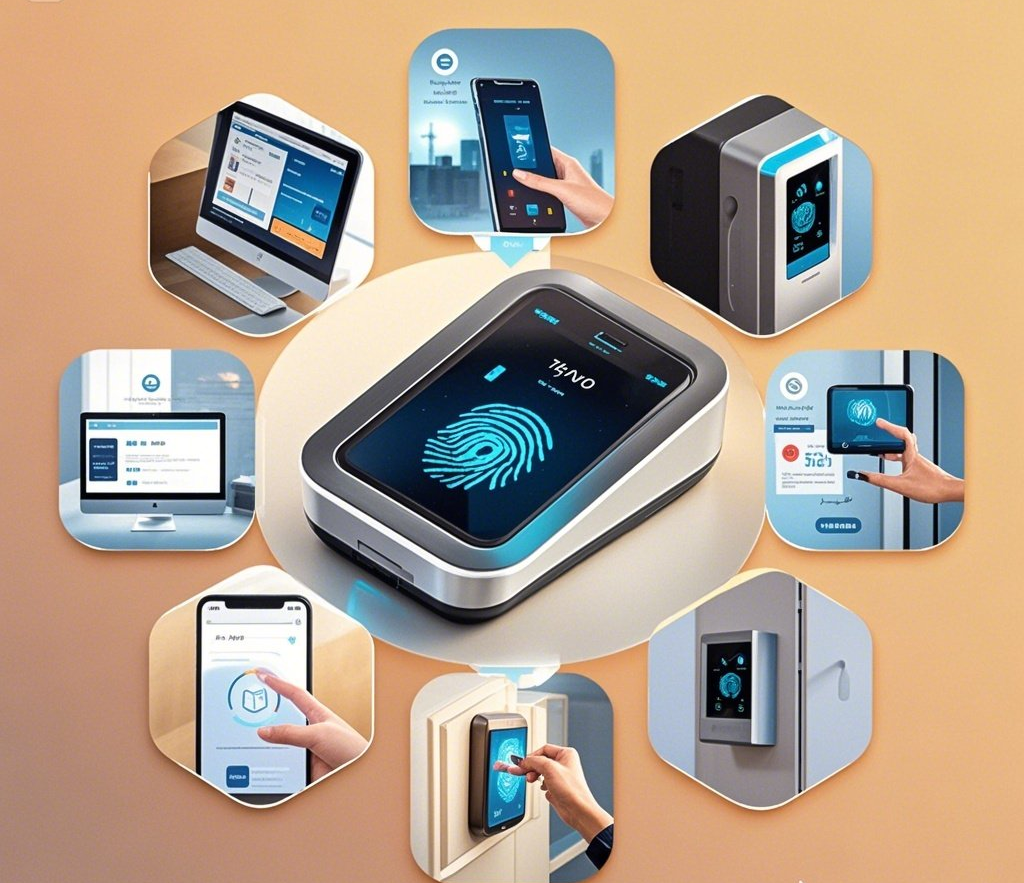What are Optical Fingerprint Scanners?
Optical fingerprint scanners are devices that capture the unique patterns on a person’s finger using light-based technology. They utilize optical sensors to scan and capture high-resolution images of the fingerprint ridges and valleys, which are then used for fingerprint recognition. Unlike other fingerprint scanners, optical fingerprint scanners rely on visible light to illuminate the finger and record the fingerprint image on a CCD or CMOS sensor.
Core Characteristics:
High Accuracy
Optical fingerprint scanners provide a high level of precision, ensuring accurate fingerprint recognition and authentication for secure access control, time tracking, and personal devices.
Hiệu quả về chi phí
Compared to other biometric technologies, optical fingerprint scanning is often more affordable, making it accessible to various industries and applications, including healthcare, finance, and security systems.
Durability and Longevity
Optical fingerprint scanners are typically robust and durable, with a long lifespan under normal operating conditions, ensuring reliable performance in demanding environments such as industrial settings and high-traffic areas.
Non-Invasive
Optical fingerprint scanning is non-invasive and easy to use, requiring only the user to place their finger on the scanner's surface, making it convenient for quick authentication in diverse environments such as offices and public spaces.
Applications of Optical Fingerprint Scanners
Công nghệ quét vân tay quang học finds applications in a wide range of sectors, offering enhanced security and streamlining user identification processes.
Access Control Systems
Optical fingerprint scanners are frequently used in access control systems, enabling organizations to restrict access to secure areas based on fingerprint authentication. This method enhances security by providing a higher level of certainty that the individual is authorized to enter.
Time and Attendance Systems
Many businesses rely on optical fingerprint scanners for time and attendance management. By using fingerprint recognition, these systems accurately track employee attendance, reducing the risk of fraudulent clock-ins or time theft.
Mobile and Personal Devices
Many modern smartphones, tablets, and laptops incorporate optical fingerprint scanners to provide secure user authentication. These devices offer biometric security features for unlocking the device and accessing sensitive data.
Financial Transactions
Optical fingerprint scanners are used in banking and financial services to authorize transactions. By requiring fingerprint authentication, these systems ensure that only authorized individuals can perform financial operations, reducing the risk of fraud.
Government and Law Enforcement
Governments and law enforcement agencies often use optical fingerprint scanners for identity verification in border control, criminal investigations, and national security applications.
How Optical Fingerprint Scanners Work
Optical fingerprint scanners use visible light to capture an image of the fingerprint. Here’s a brief overview of how they operate:
Finger Placement and Illumination
The user places their finger firmly on the scanning surface, which is illuminated by a light source, typically LED or infrared. This light highlights the intricate details of the fingerprint, allowing the scanner to capture a clear and precise image of the fingerprint’s surface, including the unique ridges and valleys. This step ensures that the scanner can accurately detect the fingerprint’s features for recognition.
Image Capture and Reflection
The optical fingerprint scanner captures the light reflected from the finger, using a sensor to detect the patterns of the ridges and valleys on the fingerprint. This captured light is transformed into a high-resolution image, providing a detailed digital representation of the user’s unique fingerprint structure. This process ensures that even the most intricate details of the fingerprint are preserved for accurate matching.
Template Conversion and Identity Matching
The captured fingerprint image is processed by the scanner’s software, which analyzes the patterns and converts them into a digital template. This template is a unique mathematical representation of the fingerprint’s characteristics. It is then compared against a database of stored fingerprint templates to verify the user’s identity, confirming whether the scanned fingerprint matches an enrolled one for authentication purposes.
Ưu điểm của máy quét vân tay quang học
Quick and Easy Identification
Optical fingerprint scanning is fast and efficient, providing quick identification and authentication of users, ensuring minimal wait times and enhancing user experience in high-traffic environments such as offices, airports, and secure facilities.
Low Maintenance
These scanners have minimal moving parts, requiring less maintenance compared to other types of fingerprint scanners, making them more reliable and cost-effective over time, especially in environments with frequent use.
Tính linh hoạt
Optical fingerprint scanners are suitable for a variety of applications, from access control to personal devices, making them highly adaptable for diverse industries such as healthcare, finance, and government security systems.
Limitations of Optical Fingerprint Scanners
Despite their benefits, optical fingerprint scanners do have some limitations:
Vulnerability to Dirt and Moisture
The surface of the scanner must be kept clean and dry for optimal performance. Dirt, oil, or moisture on the finger can affect the accuracy of the scan, leading to failed authentication or slower processing times, especially in high-traffic environments.
Limited Precision in Some Cases
While optical scanners are generally accurate, they may struggle with fingerprints that are damaged or poorly defined, such as those from excessive wear, cuts, or dirt buildup, leading to potential recognition errors or delays in authentication.
Phần kết luận
Optical fingerprint scanners offer a reliable, cost-effective, and non-invasive solution for biometric authentication. From access control to mobile devices and time-attendance systems, their applications are vast and growing. As businesses and individuals continue to prioritize security, optical fingerprint scanners will remain a key technology in the biometric solutions landscape.
Optical fingerprint scanners continue to provide reliable biometric authentication for a variety of applications. With their cost-effectiveness, ease of use, and adaptability, they remain a popular choice for businesses and consumers alike seeking secure and convenient solutions for identity verification.
Câu hỏi thường gặp
Optical fingerprint scanners use visible light to capture fingerprint images, making them more affordable and accessible compared to other technologies.
Yes, they are secure, using unique fingerprint patterns for authentication. Adding liveness detection further enhances security.
They perform best indoors, as extreme weather or direct sunlight can affect their accuracy.
Yes, they are widely used across many industries, but some high-security environments may require more advanced technologies.
With proper maintenance, optical fingerprint scanners are durable and have a long lifespan.




